Born in New York City in 1953, Bob Harrison attended Cornell University before going to Oxford to read for a second undergraduate degree in PPE (politics, philosophy and economics). After Oxford, he graduated from Yale Law School and practised law with Davis, Polk & Wardwell in its New York and Paris offices for 6 years before moving into investment banking, where he had a 16-year career with Goldman Sachs, becoming a partner and global co-head of the Communications, Media and Entertainment group. From 2007 to 2016, Harrison served as chief executive of the Clinton Global Initiative and since 2018, he has been a member of the Clinton Foundation’s Board of Directors. He currently serves as Interim chief executive of the Clinton Foundation. Harrison served as chair of Cornell University’s Board of Trustees for more than a decade and is currently a trustee of the Rhodes Trust. He has been a director of the Association of American Rhodes Scholars and is also a member (and former chair) of the Henry Street Settlement Board of Directors. In 2022, Cornell’s College Scholar Program was renamed the Robert S. Harrison College Scholar Program in recognition of his philanthropic support, and he also continues to be a generous supporter of the Rhodes Trust. This narrative is excerpted and edited from an interview with the Rhodes Trust on 2 August 2024.
Bob Harrison
New Jersey & St John's 1976
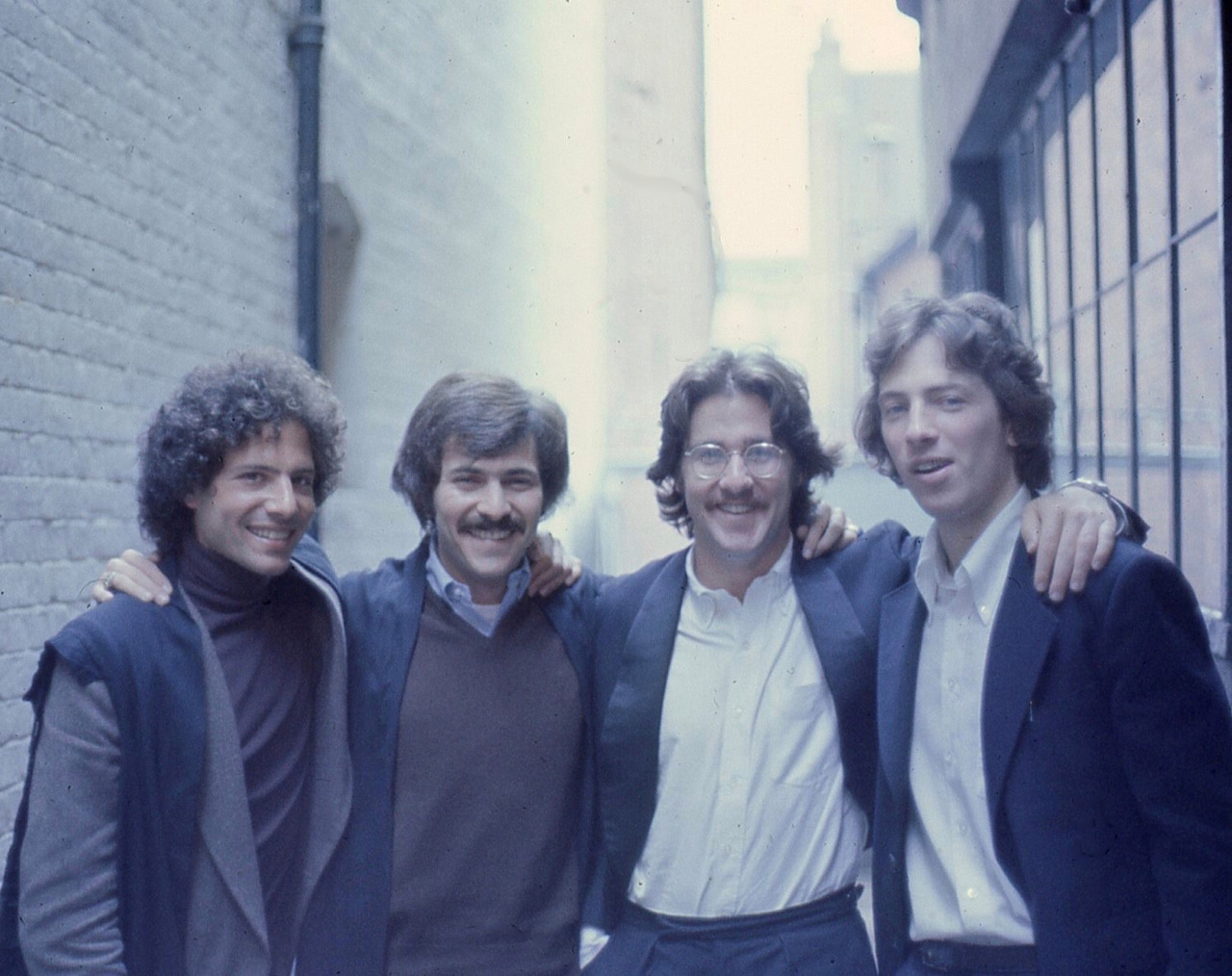
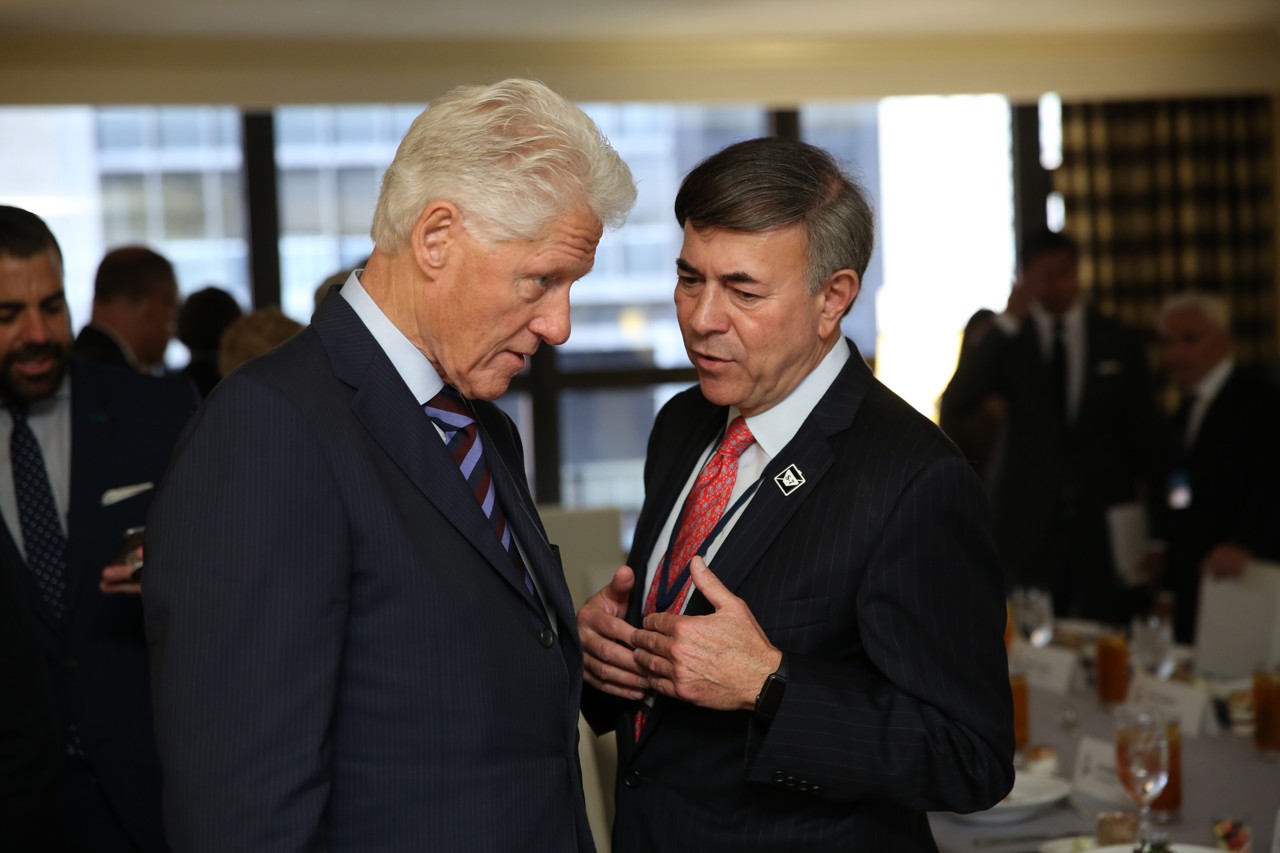
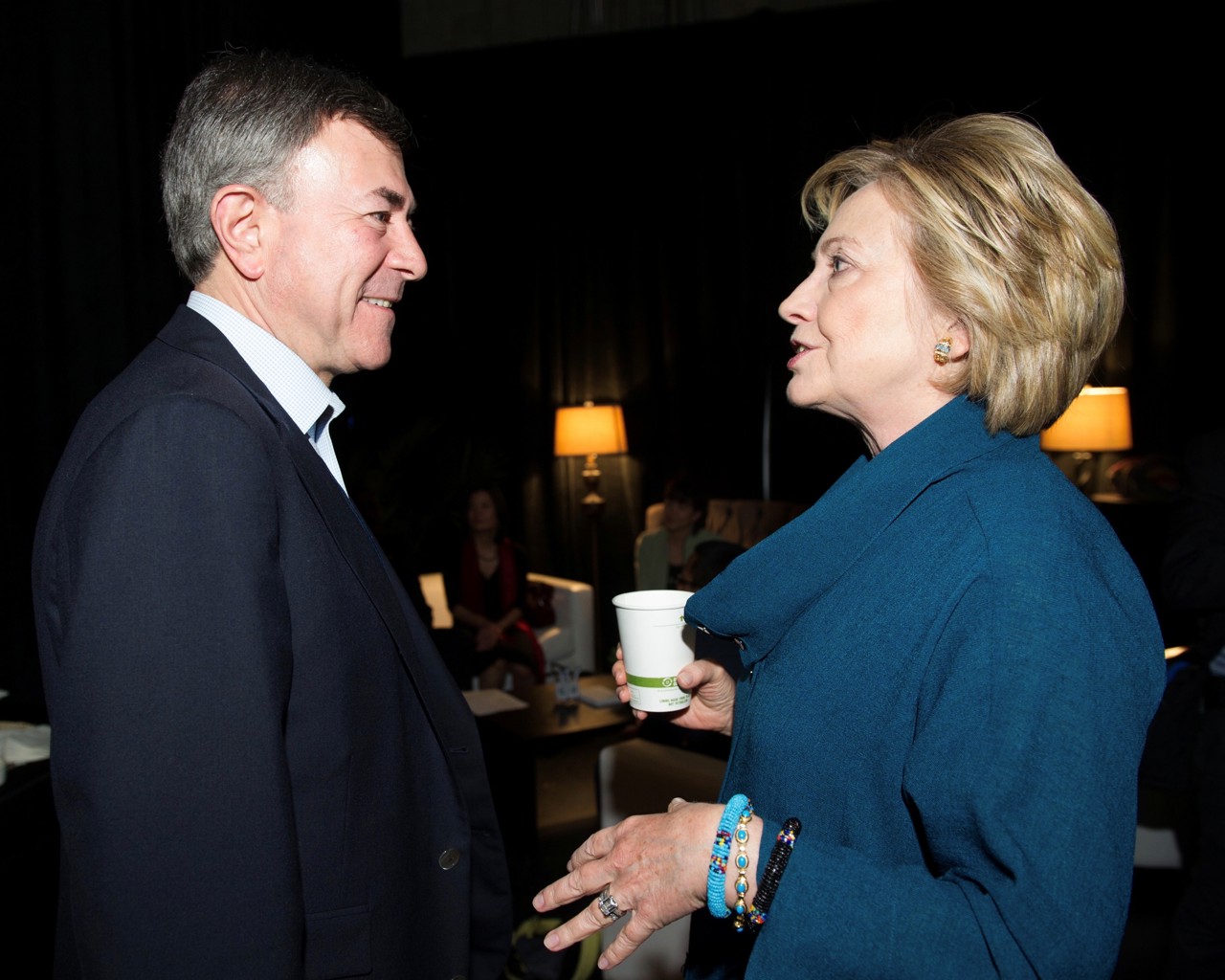
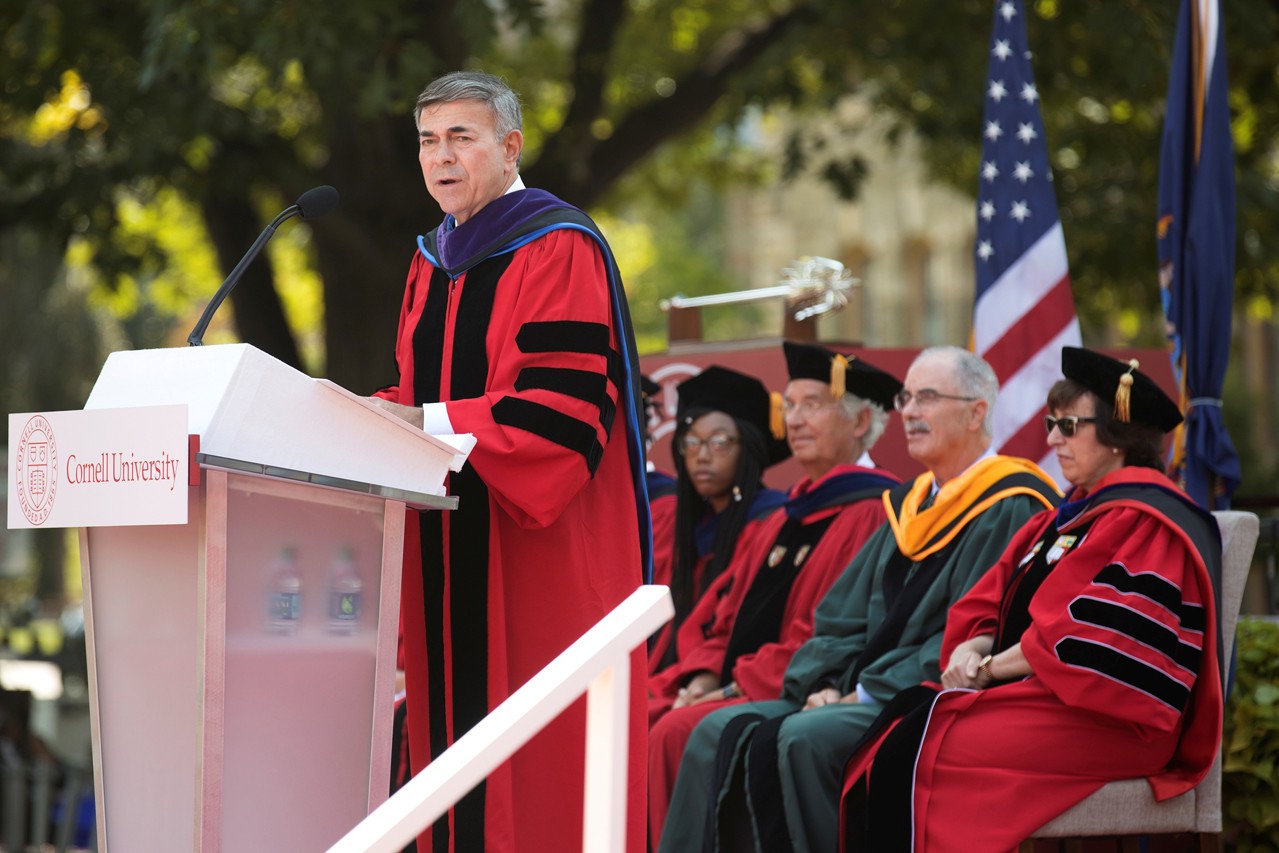
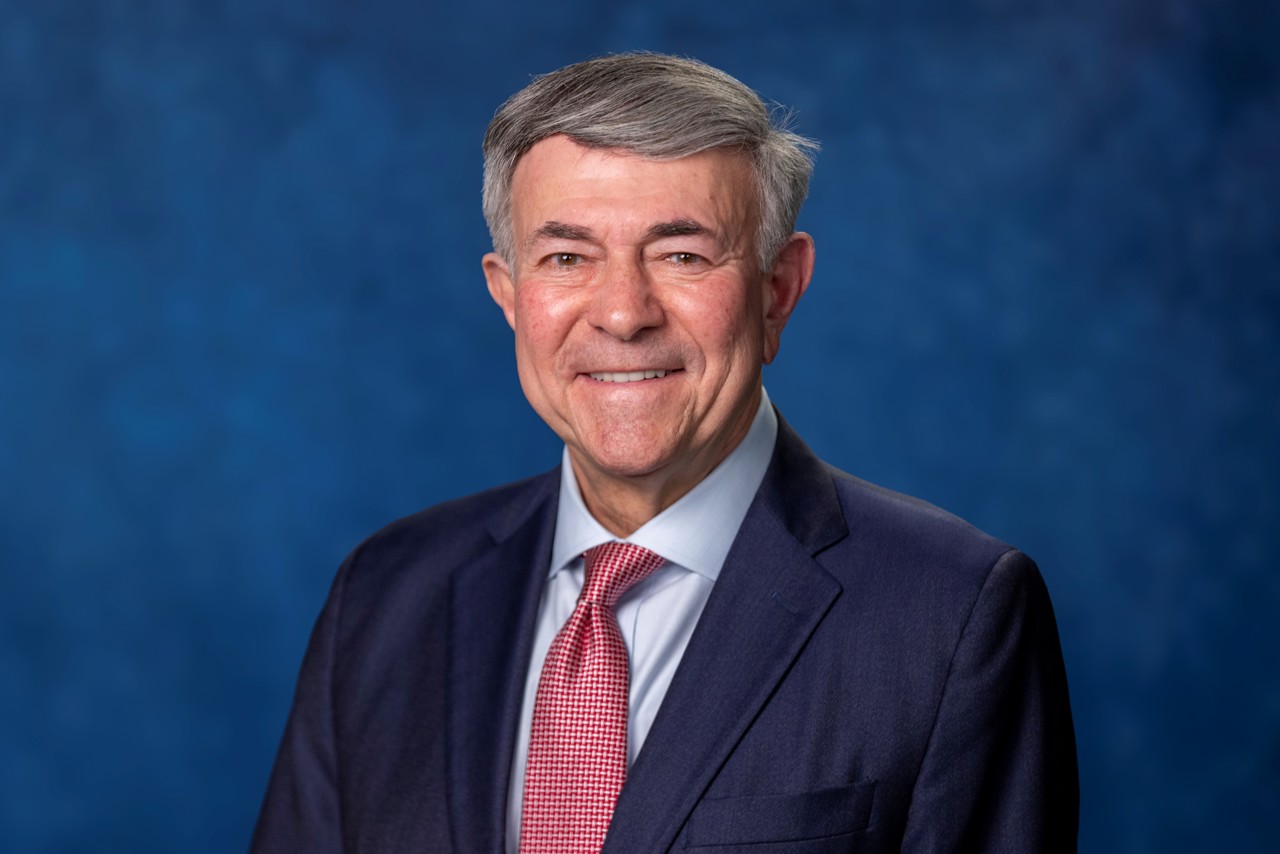
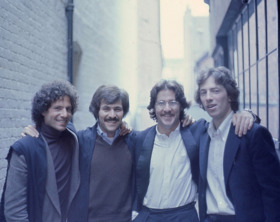
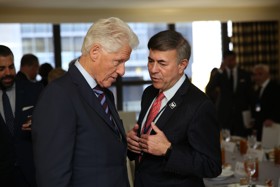
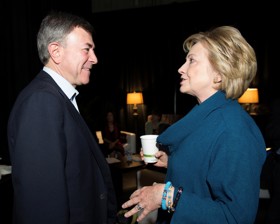
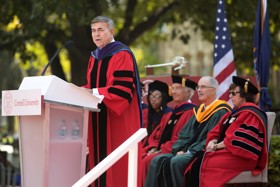
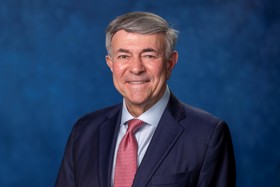
‘The best thing that ever happened to me’
I grew up in Oradell, New Jersey, which was used as a set for many TV commercials because it evoked feelings of Anywhere, USA. I was an only child, although I was never lonely, as I was very close with my grandparents on both sides and had multiple aunts and uncles and cousins. My father was an attorney who then had a second career as a financial adviser, and my mother was an elementary school teacher. As I child, I liked playing soccer and I took up skiing too. I also, believe it or not, got into riflery, because I was required to take it when I went to summer camp and became remarkably proficient. I enjoyed photography, too, and my dad even built me a darkroom in the basement of our house. By the time I got my driver’s licence, I fell in love with convertibles!
In high school, I had a teacher who thought I had a good radio voice, so I used to do all the morning announcements over the public address system. Gradually, that turned into competitive forensic speaking and debating. At that time, I thought I wanted to be a lawyer, partly because my father was a lawyer, but also because I used to watch Perry Mason Judd for the Defense and LA Law. It was only when I finally got to law school that I realised any resemblance between TV law and real world law is totally coincidental.
All the time I was in high school, I wanted to go to Yale, so I was very disappointed when I got a thin envelope instead of a thick envelope from the admissions office. I was on the wait list, and I waited and waited, and then finally, I enrolled at Cornell, and I have to say that it turned out to be the best thing that ever happened to me. My friends from orientation week are still among my closest friends today.
On applying for the Rhodes Scholarship
Aside from friendships, I really threw myself into everything Cornell had to offer. I learned how to play squash, became a newscaster and a disc jockey and joined a fraternity. I also got deeply involved in university governance. As a result of the student protests there in the late 1960’s, Cornell completely transformed its governance structure to delegate very meaningful authority to students, faculty and employees. I was very involved for my entire college career and ultimately got elected to serve on the Board of Trustees as a student. I was also admitted into the College Scholar Program, which allowed me to create my own course of study. My academic adviser, suggested I read The Presidential Character by James David Barber, which explained presidential behaviour in terms of the personalities of the presidents. That led me to do my honours thesis on a U.S. congressional committee I had been working for. I interviewed the Congressmen on the committee and gave them personality tests and then wrote my thesis explaining the committee’s behaviour in terms of the personalities of its members.
It was actually the provost and vice provost of Cornell who encouraged me to apply for the Rhodes Scholarship and even obtained the application for me. Until then, I didn’t know anything about it or any other kind of scholarship and certainly never considered applying. The whole process really came out of nowhere, and I was shocked when I was invited for interviews at the state level at the Lawrenceville School and then at the district level at Rockefeller University. I do remember, when the winners were announced, we were each given a dime to make a call to our parents, and then, one of the members of the committee invited the four of us into the library and poured each of us a brandy, and we spent the next hour or so talking about what to expect in Oxford.
‘It broadened my world tremendously’
In those days, Scholars from the US and Canada sailed over to England together on the QE2. It was a great bonding experience and meant that when I arrived in Oxford, I already had a cohort of friends. I’m still very close to several of them to this day. Beyond that, though, there was little organized interaction among Scholars or connection with Rhodes House, which was not what I was expecting. The positive part was that we were forced to become part of college life, and as a result, I have great English friends.
I chose to study philosophy, politics and economics as a logical extension of the political science work I had done at Cornell, and it gave me the opportunity – the luxury, really – of reading Hobbes, Locke, Rousseau, Descartes, Kant, Wittgenstein, Dworkin. I had amazing tutors, and on a personal level, the whole experience broadened my world tremendously. A big part of that resulted from a conscious decision I made to travel extensively. I spent every vacation and many weekends going to Europe, and travelling around the UK. One especially memorable trip was to Moscow and Leningrad, where we ended up trading Levi’s jeans for Russian fur hats outside the Lenin Mausoleum on Red Square. Frankly, we were lucky not to get arrested.
On career chapters
I’ve had three careers or chapters in my life: law, investment banking, and then working for President Clinton (University & Arkansas 1968) at the Clinton Foundation. My decision to leave the law came shortly after a wonderful two-year period in my firm’s Paris office. There, lawyers were treated like trusted advisers by their clients, but when I returned to the States, the work was dramatically different. Young lawyers largely drafted, redrafted and proofread documents. Eventually, I went out to dinner with some investment banker friends, and when they heard what I was doing, they said I ought to be doing what they were doing. Given the contrast between my Paris experience and my current life in Big Law, I interviewed with three firms and made the decision to leave law and switch careers to work at Goldman Sachs. Ironically, my start date was 19 October 1987, or “Black Monday”, when the market cratered 22.5% in one day. That night, my bosses at the law firm reached out to suggest that I reconsider. After a sleepless night, I decided to stay the course, and it was the best professional decision I could have made. As global co-head of the media and telecom group, I was involved in an exciting time in history. Our clients were establishing global footprints, disrupting old media, and creating the internet infrastructure we take for granted today. But when the bubble burst in the early 2000s, reducing the size of my group was an enormously difficult and painful task.
It was after that and the trauma of 9/11 that I decided to move into public service full-time. I got involved in the 2003 Democratic presidential campaigns of General Wes Clark and Senator John Kerry in the hope of serving in a Democratic administration. When that didn’t work out, I was approached by the Clinton Foundation and asked to work on a project involving access to water and sanitation in the developing world. I did the research and gave my best unvarnished advice. Then, they asked me to run the project, but my children were young at that point, and I didn’t want to be overseas. Instead, I worked to create the Foundation’s childhood obesity initiative in partnership with the American Heart Association. After about 18 months, President Clinton asked if I would become chief executive of the Clinton Global Initiative. The idea of CGI was to convene leaders from the public sector, private sector, and non-profit sector to address the most pressing global challenges and to require participants to make public commitments to take action against those challenges, rather than just discussing possibilities. Now, nearly 20 years since inception, CGI participants have made more than 4,100 commitments operating in 190 countries and positively impacting over 500 million people.
I’m also enormously proud of the work that I was able to get involved with as the Board Chair of Cornell for more than a decade -- in particular, the creation of the university’s College of Business, the expansion of on-campus residential alternatives for 2000 students, and the transformational addition of a technology campus in New York City, Cornell Tech. My time as chair of the board coincided with some extremely difficult periods, especially following the death of Cornell’s then president, Beth Garrett, after only eight months in office. The pandemic was also challenging, although we were actually able to continue with a hybrid online and on-campus programme that was a huge accomplishment in a country where most universities went entirely online.
On giving back and staying connected
I grew up in a very traditional, middle class Jewish family that valued education hugely and was not at all flashy. So, I’ve been programmed from the beginning to be appreciative and grateful and to work hard and to take educational opportunities dead seriously. That’s all there is to it. I’ve loved serving on the Board of the Association of American Rhodes Scholars and I was thrilled to be invited to serve on the Rhodes Trust Board of Trustees. It’s a way of giving back to something that was a tremendous honour and that had a tremendous impact on me.
To today’s Rhodes Scholars, I would say, don’t ever forget that the ultimate reason we were selected is to fight the world’s fight. And stay connected with the Rhodes community and your national Rhodes organisations. It takes people who understand and appreciate the Rhodes experience to perpetuate this amazing opportunity we were all given.
